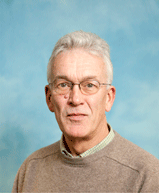IER research podcasts
|
|
Professor Kate Purcell, Inaugural Rosemary Crompton Memorial Lecture
12:25, Thu 18 Jun 2015
Professor Kate Purcell speaking at the Inaugural Rosemary Crompton Memorial Lecture 2015 (City University, London)
(MP4 format, 126 MB)
 |
In the first of a series of podcasts about our work at the Institute for Employment Research, Professor Peter Elias talks about his work assisting the research councils in the UK with the development of a research infrastructure in the social sciences. Since 2004, Peter has acted as the Strategic Advisor for Data Resources to the UK Economic and Social Research Council (ESRC). He has been assisting the ESRC and other research funding councils and agencies with plans to develop data resources for research across the social sciences and at the boundaries between the social sciences and other disciplines. To find out more about Peter and his work for the ESRC go to his webpage . . |
 |
In the second of a series of podcasts about our work at the Institute for Employment Research, Terence Hogarth reflects on IER’s 30 years of research into the relationships between the operation of the economy, working practices, education and training. He talks about his research work on the economy and investment in education and training to support recovery. At IER, Terence leads a programme of research into employers' skill needs and human resource policies. This includes a series of studies conducted over the past ten years that have addressed work-life balance, long hours working, and working time in the European Union. To find out more about Terence and his work at IER go to his webpage . . |
 |
In the third of a series of podcasts about our work at the Institute for Employment Research, Professor Kate Purcell debates the social consequences of education and training policy aimed at the expansion of higher education and widening access. With a background in sociology, Kate specialises in investigating the interface between labour markets and organisations, with a focus on changing employment boundaries. Kate has conducted a series of longitudinal studies of graduate transitions from higher education to employment and case study investigations of both graduates and employers. In the podcast, Kate also talks the Futuretrack study, which is exploring the relationship between higher education, career decision-making and labour market opportunities. To find out more about Kate and her work at IER go to her webpage  . For more on the Futuretrack . For more on the Futuretrack go to the project website. You can also follow the Futuretrack project on Twitter go to the project website. You can also follow the Futuretrack project on Twitter , Facebook , Facebook and LinkedIn and LinkedIn for up-to-date information. for up-to-date information. |
 |
In the fourth of a series of podcasts about our work at the Institute for Employment Research, Professor Anne Green speaks about her recent work on spatial inequalities in the UK and the importance of sub-national perspectives on employment and skills. Anne reflects on the findings of selected recent projects and discusses implications for policy. A geographer by background, Anne has substantial experience of researching employment, non-employment, regional and local labour market issues, migration and commuting, and associated policy issues. Anne’s current and recent research concerns geographical mobility (including both migration and commuting), the geography of employment and worklessness, employability issues, local skills strategies, and the role of social networks and place attachment in understanding labour market behaviour. To find out more about Anne and her work at IER go to her webpage. |
 |
In the fifth of a series of podcasts about our work at the Institute for Employment Research, Professor Jenny Bimrose tells us about some of the findings of her international study of older workers, in particular she focuses on the career development of older women and the role of careers guidance. Her work highlights the different transitions that take place – from school to college or work, and moving between different jobs and sectors – and how in the current climate, whilst there is a need for companies to retain older workers, the career support required for older women needs to take particular account of their circumstances. With over thirty years experience in higher education, researching and teaching at post-graduate level, Jenny has extensive experience of external project management and consultancy, both in the UK and Europe. Many of her research projects have focused on the area of the theory and practice of career counselling and guidance and on gender. On-going research interests include supporting guidance practitioners in their use of labour market information in guidance; the theory and practice of careers guidance; the decision-making styles and career trajectories of individuals across Europe; the implications for career guidance of women's career development; and examining knowledge maturing processes within and between organisations. To find out more about Jenny and her work at IER go to her webpage |
|
|
|
 |
In the sixth of a series of podcasts about our work at the Institute for Employment Research, Professor Alan Brown talks about the role of learning in developing career adaptability at work. He reports on a qualitative evaluation of 64 adults’ career biographies in the UK and Norway undertaken for the UK Commission for Employment and Skills. This study looks at how individuals have adapted their career pathways over time, and across occupations and sectors, using both informal and formal learning to develop and accumulate skills. Alan joined IER in 1996. His current research, which has a strong international orientation, focuses mainly upon changing occupational identities, continuing vocational training, skill formation, organisational performance, networks and supporting knowledge sharing and development and learning in professional communities of practice. To find out more about Alan and his work at IER go to his webpage |
|
|
|
 |
In the seventh of a series of podcasts about our work at the Institute for Employment Research, Pamela Suzanne talks about her doctoral research which is looking at the work-role transition experience of business professionals. In her research, she focuses on how Argentinean MBA graduates, who are making a career transition and are starting a new role, acquire the required skills, develop new social relations, and construct their dynamic professional identities. Through a grounded theory perspective, she is able to understand what is relevant to experienced newcomers and advance theoretical and practical knowledge on career transitions and socialisation. In the podcast. she talks about her MSc thesis findings, which motivated her PhD research question. Pamela joined IER in 2009 after completing her MSc in Organisational Studies at University of San Andres in Argentina. She has worked as a Research Assistant at The Wharton School, University of Pennsylvania and as a Research and Teaching Assistant at University of San Andres. Pamela will be completing her PhD shortly. To find out more about Pamela go to her webpage |
 |
In the next podcast about our work at the Institute for Employment Research, Bernard Casey talks about his research on older workers and the effects of working longer on health and well-being. Bernard also considers how employment, pensions and social cares systems interrelate, together with the effect of working longer on people’s physical and mental health.
Bernard Casey joined IER in 2007 as a Principal Research Fellow. His research into the economic implications of societal ageing has been concerned with employment in later life, work and health, transitions to retirement, employment-related social security and long-term care of the frail elderly. In addition, he is interested in higher education and in non-standard working patterns. To find out more about Bernard and his work, go to his webpage. |
